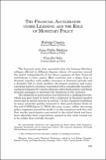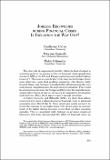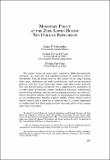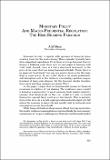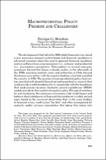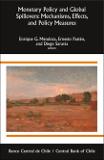Buscar
Mostrando ítems 31-38 de 38
The financial accelerator under learning and the role of monetary policy
The financial crisis that unraveled after the Lehman Brothers collapse affected in different degrees almost all countries around the world independently of the direct exposure of their financial institutions to toxic assets. Most countries saw a sharp drop in demand together with sudden increases in ...
Trilemmas and tradeoffs: living with financial globalization
This paper evaluates the capacity of emerging market economies (EMEs) to moderate the domestic impact of global financial and monetary forces through their own monetary policies. I present the case that those EMEs able to exploit a flexible exchange rate are far better positioned than those that devote ...
Jobless recoveries during financial crises: is inflation the way out?
The slow rate of employment growth relative to that of output is a sticking point in the recovery from the financial crisis episode that started in 2008 in the U.S. and Europe (a phenomenon labeled 'jobless recovery'). The issue is a particularly burning one in Europe where some observers claim that ...
Credit stabilization through public banks: the case of Banco Estado
A novel element in the policy mix that responded to the 2008- 2009 financial crisis was the explicit role given to BancoEstado a publicly-owned commercial bank to alleviate the contraction in domestic credit provided by the banking sector. In order to aid its mission BancoEstado was capitalized by 500 ...
Monetary policy at the zero lower bound: the Chilean experience
The global financial crisis that started in 2008 dramatically changed the analysis and implementation of monetary policy worldwide. Central banks were at the center of the stage during that time implementing both conventional and unconventional policies. Not only were monetary policy rates drastically ...
Monetary policy and macro-prudential regulation: the risk-sharing paradigm
Economic history is replete with episodes of financial crises creating havoc for the real economy. These episodes typically have three important ingredients. First there are large financial flows to finance a bubbling asset class such as sovereigns or housing with 'safe' debt. Second there is a sharp ...
Macroprudential policy: promise and challenges
The developments that led to the 2008 global financial crisis raised a new awareness amongst central banks and financial regulators in advanced economies about the need to approach financial regulation and surveillance from a macroeconomic (i.e. systemic) and prudential (i.e. pre-emptive) perspective. ...
Monetary policy and global spillovers: mechanisms, effects and policy measures
Central Banks in emerging markets have been forced in the last decade to deal with spillovers from the crises in the United States and Europe and from the extraordinary measures respectively taken by the Federal Reserve and the European Central Bank. This volume provides a comprehensive study of the ...

